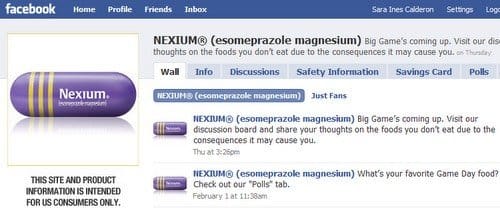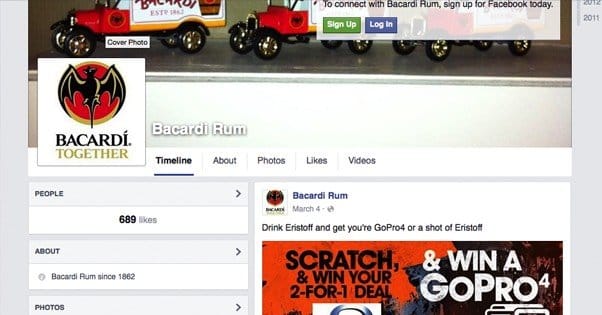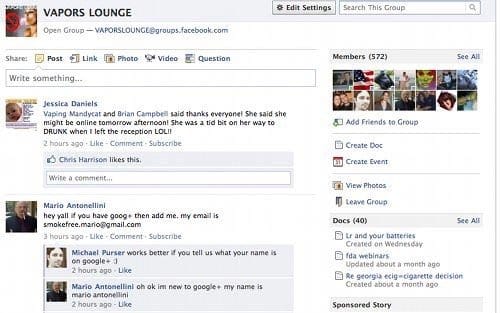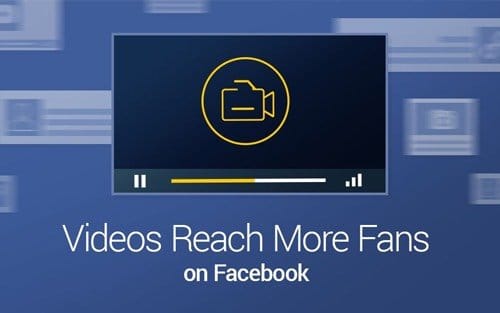 Written by ContentPowered.com
Written by ContentPowered.com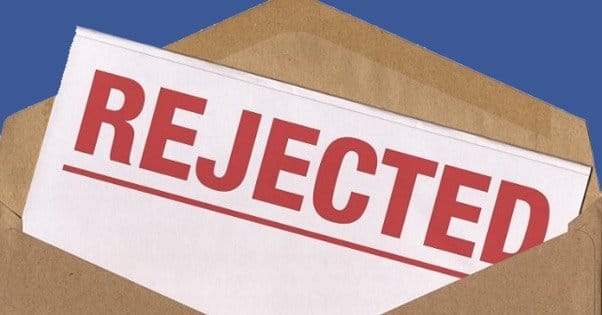
Facebook is billed as one of the best available tools for marketers of all stripes, but the reality is, it’s a lot harder for some companies to market than it is for others. I’m not talking about the difference between Bob’s Hardware and Coca-Cola here. I’m talking about more of the inbuilt limitations on Facebook as a platform. Specifically, I’m talking about their content restrictions, both for creation of pages and for advertising.
Some content – and thus some businesses – are completely banned from even having Facebook pages. Others are forced to comply with restrictions, primarily age restrictions. Others can have pages, but are not allowed to advertise.
I’m not here to judge the merits of Facebook’s policies. They’re a massive global company operating pretty much everywhere in the world. As such, they have a lot of political and economic incentive to comply with various laws, policies, and social mores around the world. That’s why they have age restrictions for some content, like alcohol. Tobacco products, likewise, are heavily regulated with advertising laws.
They’re also a company and a site that includes a lot of minors. That means some content is just plain not allowed, mostly adult content. There’s nothing wrong with adult content in general. It fills a role in society, the businesses that run are legitimate just like any other business. They just need to comply with the law, and the law limits how they can be exposed.
Some of you run businesses in one of these restricted sectors, and it means you have a harder time than the rest of us do when marketing through Facebook. I’m going to walk you through what you can do to advertise and grow, and what restrictions exist.
Content Outright Banned or Restricted on Facebook
So what content, what businesses, are banned from even having Facebook accounts?
- Pages that promote the private sale of regulated goods or services must restrict access to their pages to only those over the age of 18. This includes businesses selling firearms, alcohol products, tobacco products, or adult products.
- Pages that promote content related to gambling, games of skill, lotteries, sports betting, bingo, poker, and online casinos are not allowed unless Facebook has given you prior authorization.
- Pages that promote prescription pharmaceuticals are outright banned, with the exception of some online pharmacies that have prior approval from Facebook directly.
What does this all mean? Well, stores that sell guns, alcohol, cigarettes, or adult products can exist on Facebook. I have seen gun stores, alcohol stores, stores for e-cigs, and even adult products all throughout Facebook.
You might notice something if you click some of those; the imagery and the advertising they use is not explicit. That’s essentially the number one rule when advertising a restricted product on Facebook. In addition to being limited to 18+ viewers, the adult pages in particular are very careful to never post anything sexually explicit. At minimum, the post would be removed, but Facebook can easily cancel the account as well.
Casinos are a bit different. Any form of online gambling, or even offline gambling, is walking a fine line on Facebook. Legitimate businesses like big-name casinos often have Facebook pages, but they aren’t verified and they aren’t able to advertise. Less legitimate businesses – online casinos that could be scams, illegal gambling, and the like – are often found and purged. The same goes for online pharmacies.
If you’re one of those “needs prior approval” businesses, you can contact Facebook and submit your case. I honestly don’t know the process for this, and I’m fairly certain that it’s more or less impossible. One of the biggest examples is dating sites. Some dating services are allowed. Others, like Adult Friend Finder, are completely banned. If you don’t already have approval, it’s incredibly hard to get it. Unfortunately, it’s more or less not worth trying.
There’s one more type of restricted content page, but it’s not one that typically cares much about marketing. That’s the page dedicated to state and local government organizations. Facebook has an entire sub-page dedicated to the terms for those pages.
You can read the page guidelines, including the restrictions on page content, here.
Restrictions on Verboten Content Pages
One thing I mentioned above is that if you’re going to run one of these pages, you will need to set age restrictions. Facebook has a bunch of different age restriction settings, ranging from 17+ and 18+ to 21+ and a special “alcohol-related” setting. This alcohol setting is important, because it changes dynamically according to the region the browser is accessing Facebook from. Some countries ban alcohol, some have different age restrictions, and it’s all very complex. Facebook lumps it all into one setting so you don’t have to worry about it. You can read more about age and other restrictions here.
In addition to all of that, there are strict guidelines to advertising. Some of these businesses will be able to advertise for their services, but will have to comply with the rules Facebook put down. Others – most of you – will be unable to use advertising at all simply due to the subject matter.
If you are able to use Facebook ads, here are the guidelines you will have to follow.
- Ads cannot promote or facilitate anything illegal. Most of the businesses relevant to this article also cannot be advertised towards minors, but any ads targeted at minors must not promote anything illegal, unsafe or exploitive of minors.
- Ads cannot promote the sale of illegal, prescription or recreational drugs, tobacco products or accessories, unsafe supplements, weapons, explosives, adult products, or adult services. Some exceptions exist, such as some e-cig pages and family planning services, but those are exceptions to the rule.
- Ads cannot use sexual content, nudity, violence, or confrontational imagery.
- Ads cannot address users directly by expressing knowledge of their demographics. For example, you cannot target black males with an ad that says “meet other black people locally.”
In addition, there are specific regulations for specific industries. You can skip this if your business doesn’t apply to one of these categories.
- Ads for alcohol must comply to local laws, guidelines, codes and regulations. They cannot be targeted at countries that prohibit alcohol references, such as Egypt, Kuwait, Norway, Russia, and Yemen.
- Ads for dating companies are only allowed with actual written authorization from Facebook, and must adhere to specific guidelines posted here. You can use this form to fill out an application for running dating-related ads. I highly recommend filling it out if possible; Facebook ads are just that good.
- Gambling or skill games that involve real money gambling are not allowed except with written permission, but Facebook does not provide an application link for obtaining that permission.
- Lotteries can advertise, but only if they are official state lotteries, and only if they comply with applicable laws and target the relevant people.
- Pharmacies are only able to advertise with written permission from Facebook.
- Supplements, such as dietary and herbal supplements, are freely able to advertise but must target users over the age of 18.
On top of all of that, if you’re a business that offers a subscription service, you need to comply with additional subscription service requirements, which you can find on this page. Most of it revolves around disclosure and truthfulness in information and advertising.
Why You Should Still Use Facebook
Make no mistake; a huge portion of the value that comes from marketing on Facebook comes from ads. Ads are cheap, they’re robust, they’re very flexible and you have an insane number of targeting options. So why, then, would you want to try to market on Facebook without ads? It seems like a losing proposition.
One thing to remember is that, in the majority of these cases, you’re in a business niche that can’t use ads because of the subject matter. That’s fine. Your competitors are in the same niche, and they also cannot use ads. That means while you may be at a loss compared to other brands, you’re on even footing with your competition.
Facebook also has an incredibly large userbase that loves to turn random posts into viral sensations. It’s pretty difficult to intentionally make a post go viral. It’s all down to random chance. Yet, when a post does go viral, it will bring in traffic and business for weeks or months. If you’re not using the site, you can’t get that opportunity.
The trick to using Facebook without ads is almost to go old-fashioned with it. You need the direct, person to person sales. It’s almost like going door to door, in the sense that you’re trying to engage and encourage people on a personal basis. Your company’s charm, outlook, personality, and product are the driving forces, not your budget.
The Organic Advertising Process
When you’re using Facebook without ads, you’re looking at organic advertising and organic reach. You won’t have paid reach to consider, because you can’t create ads. So what is the process whereby you can improve your business through Facebook?
To start with, you have your business, which has several resources. These resources are landing pages, a blog, and a storefront.
Your end goal is to get as many people to the storefront as possible. You won’t be able to do this directly from Facebook; they don’t like product page links and will demote your posts if they’re too promotional. Instead, you need to filter incoming traffic through your other two resources, your blog and your landing pages.
With your blog, a lot of your advertising is both passive and native. It’s sidebars and mentions in your content, which direct users to your storefront. However, the main purpose of the blog is not to sell, it’s to build trust and reputation. You only sell to people who trust you, and they trust you when they see a genuine side of you through your blog.
With landing pages, you have a more hard-sell opportunity, but they also don’t work as well to attract users. You can post them on Facebook, but you can’t flood the feed with them.
You also have other social profiles you can use to direct people both to your website and to your Facebook page. Everything is interconnected. It doesn’t matter if the person who just converted went from Facebook to Twitter to your Blog, back to Facebook, to a landing page and finally to your storefront; they converted, so you’re doing something right.
The key takeaway here is that, with Facebook, your goals are two-fold. One, you want to build trust. Two, you want to funnel people into other areas of your marketing, to keep them circulating within your web. Both require one thing: posts. Post frequently, post high quality content, and let it work for you.
Finding and Participating in Facebook Groups
One technique I like, and even recommend to pages that can run Facebook ads, is to make use of groups. On Facebook, groups are small communities that you have to join to participate. Some of them are hidden, others are invisible unless you’ve been approved, and many more are open to all comers.
Using groups for marketing isn’t too difficult. You simply need to remember to act like a person, not a marketer. You’re participating as a person, you just happen to be using your page to post.
- Find and join the right groups. You’re essentially looking for two types of groups. The first is enthusiasts of your industry who would be willing to buy your products. The second are industry influencers and important marketers, who will help you market, even if indirectly through their own posted advice.
- Spend your time in these groups posting helpfully. Don’t post marketing messages; instead, post helpful comments and let users naturally find their way to your page.
You can also create your own groups, and it could be a good idea to have at least two. One group can be used for hype, product announcements, and other “advanced information” that could be considered too promotional for your organic wall. The other type would be a customer support group, where users can assist each other and you can assist all of them with problems.
Posting Open-Ended Content to Spur Engagement
When you’re posting content, you’re going to want to post a mixture of different kinds of content. Since you can’t use Facebook ads, you’re going to fill the voice with extra organic posts. I’m talking between 3 and 10 per day, depending on the size of your audience. What kind of posts fill up these slots? Text posts, images, videos, infographics, blog post links, landing page links; anything, really. You want a good mixture, a good balance, so you’re not heaping too much into one type of content.
The first good kind of content I’m recommending is open-ended content designed to foster engagement. Ask users questions! The typical sort of fill in the blank, or basic interview questions, or polls; these are perfect. You can also create and circulate Facebook memes, like the “your shirt color and this word associated with your birthday equals your crazy cat lady name” format posts. These posts are typically images, simply because text posts don’t get as much circulation or visibility.
Emphasizing Educational Content Through Blog Posts
A lot of the industries that are blocked from advertising on Facebook, but which want to advertise on Facebook and don’t have their own dedicated ad networks, are on the fringes. I’m talking about sites that promote e-cigs and vaping, hookas, marijuana, and various not-yet-illegal drugs, typically.
One thing you can do as a business leader in this industry is strive to educate people about the truth of your products. There’s a large grassroots movement right now trying to fight stereotypes and misinformation related to marijuana in its various forms. That’s the sort of educational campaign you want to create, though on a smaller scale.
The short version: write educational posts that refute misinformation, present scientific studies, and generally promote correct knowledge over heresay. Share these frequently.
Becoming a Source for Industry News
This one helps bolster your own content by filling out slots with content from other important pages in your industry. What you’re doing here is curating content. You’re becoming a central hub for industry news and information, not just information about your own brand.
The key is to curate content from valuable sources that adds to the experience your users want. You’re not sharing everything you find from ten different businesses; you’re sharing the most important, relevant news you can find. You’ll also want to keep an eye on news sites off Facebook, like Google News or Time. Share posts that are relevant as they come up. Use them to space out your own content, so you’re not flooding users with nothing but your own posts.
Interviewing Interesting Users and Industry Figures
Every industry has influential people, whether they’re proponents or opponents. You might have some very interesting people following your business. Locate these people, interview them, and publish those interviews.
The easiest way to do this is to make a post or two asking people to tell you their stories. You can even hold a contest where the best story wins something. These stories will allow you to identify interesting people in your audience, who you can content for more detailed interviews later.
Everyone likes to know they share an interest with cool people. That’s the value you bring to the table. You’re showing your users that they’re not alone in being interesting, cool people.
Tagging Influential People in Posts to Access Their Audiences
This one is exceptionally simple. If you attended an event, held an interview, or otherwise participated in something along with an influential industry figure who uses Facebook, you can tag them as “with you” in your post. This makes your post show up for their audience as well as for yours, and gives you a chance to attract some of those followers. Just make sure you have the permission of the person you tag before you tag them; they may not want their association with your business to be spread as widely as you would like it.
Leveraging Video for Page Growth
Video content on Facebook is not to be used too frequently. It can be very potent, but people very quickly grow tired of seeing too many videos too often in their feeds. I recommend, if you can support it, 1-2 video posts per week. These can be your videos, or they can be videos you share from other sources.
What kind of videos would you want to make? Easy. Take a look at your Insights and identify the most popular, influential, and educational posts you’ve created and shared. Do the same with analytics and your blog. Once you’ve figured out what attracts the most attention, convert those posts into videos. It’s easy enough to expand upon them to make longer videos if you need, or trim them down to fit into a shorter video template.
Making and Sharing Compelling Infographics
Infographics are much like videos in that they can be made based on content you already have, though you can also start with data, turn it into an infographic, and write a post about that graphic to accompany it.
Making a compelling infographic is a complex process, and I highly recommend contracting a graphic designer if you don’t already have one. Beyond that, just try to avoid the common mistakes and you should be good to go.
Running Contests with Product Prizes
Facebook allows you to run contests on organic posts, which is excellent, because you can’t promote those posts to get more exposure to your contests. You can run a bunch of different types of contests, from caption contests to raffles and more.
The number one thing you need to remember when running contests on Facebook is to offer your own products as prizes. Never offer something that’s only generically useful; it will draw in users who only want the item, and who don’t care who you are.
Beyond that, make sure to comply with the Facebook contest guidelines and you should be in the clear. Facebook might not like you trying to give away a product that they don’t sanction, but unless they specifically ban the practice, you aren’t in violation of anything.
